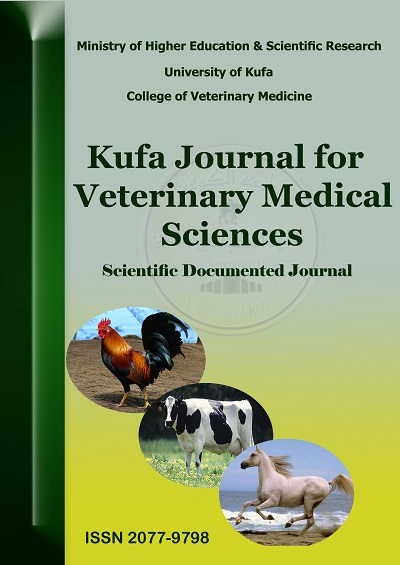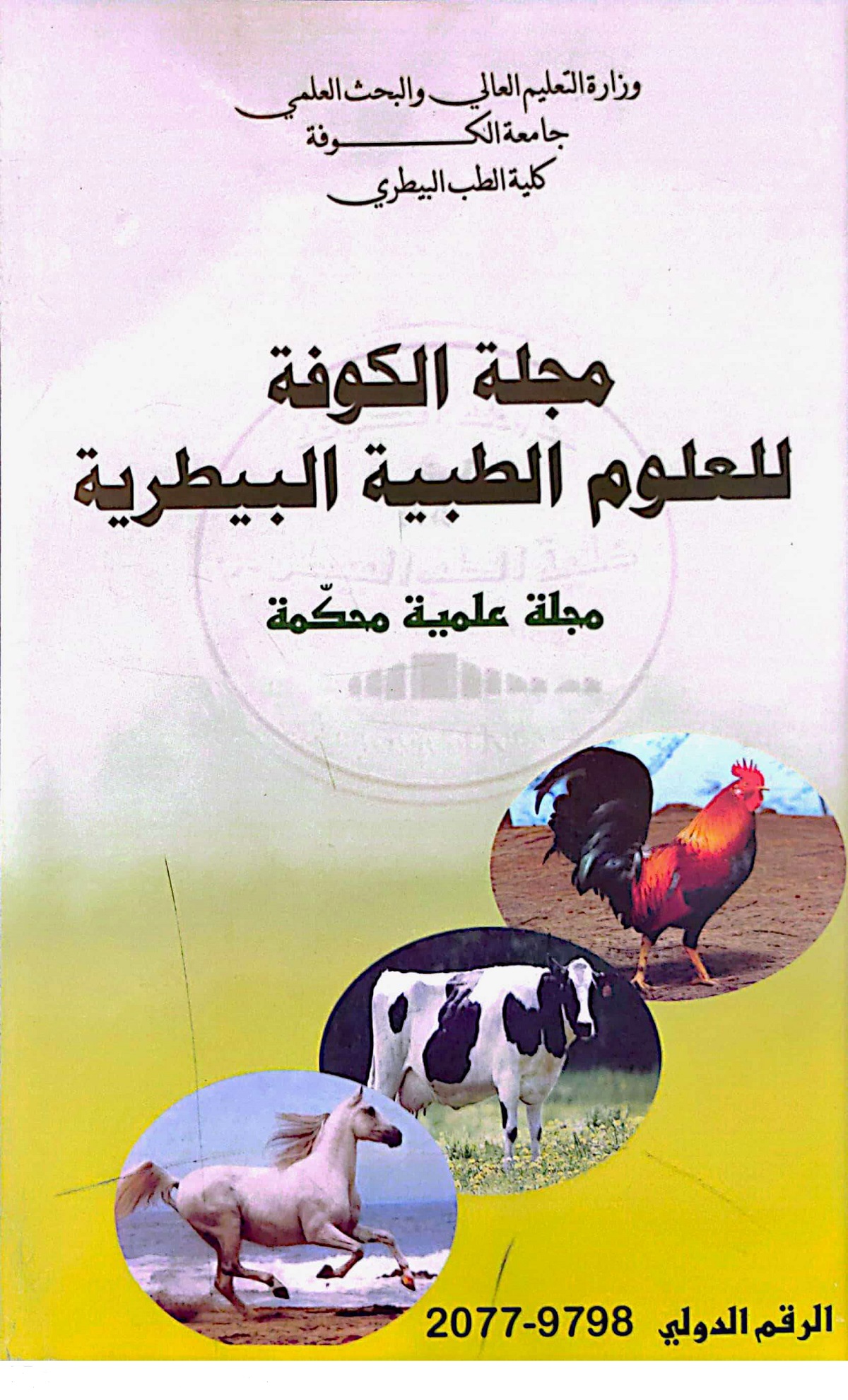Antibacterial activity of ethanolic extract of Sweet Basil (Ocimumbasilicum L.) leaves against Escherichia coli in experimentally infected Rats
DOI:
https://doi.org/10.36326/kjvs/2014/v5i24203Keywords:
Antimicrobial activity, Diarrhea, Escherichia coli, Ocimum basilucumAbstract
The present study was carried out to investigate the antibacterial activity of Ocimumbasilicum (OB)ethanolic extract in-vivo by inducing diarrhea in rats which was caused by oral administration of pathogenic Escherichea coli. The experiment that performed in this present study included study in-vivo antibacterial activity of the extract after inducing infectious diarrhea with oral pathogenic E. coli in five rats groups (eight rats of each). Two doses of O.B extract 100, 200 mg/kg. BW was used to treat this infection for fourteen days orally which compared with group E that treated with Trimethoprim/sulfa at dose 6.85mg/kg BW. The yielding percentage of Ocimumbasilicum 95% ethyl alcohol leaves extract was 13%. Phytochemicals analysis indicated the presence of alkaloids, phenols, tannins, saponins, flavonoids, steroids and terpenoids, while glycosides were absent, but Alkaloid, phenols, saponins and tannins were seemed to be found in high levels in the crude extract. Biochemical analysis of serum albumin showed different results; Albumin values returned to normal values during treatment with Ocimumbasilicum leaves extract dose of 200 mg/kg BW and Trimethoprim/sulfa at dose 6.85mg/kg BW also these two kinds of therapy returned intestinal secretory nearly to normal levels after treatment for seven days in comparison with other groups, while a dose of 100 mg/kg BW of OB extract showed a little decrease in albumin concentrations after 7 days of treatment. From the results obtained, it could be concluded that ethanolic extract of O.B leaves at dose 200 mg/kg BW was more effective and safe in comparison with antibacterial agent and other O.B dose, this antidiarrheal activity of O.Bethanolic extract may be due to its constituents of secondary metabolites that are responsible for the antibacterial activity with different mechanisms of action.
Downloads
Downloads
Published
How to Cite
Issue
Section
License
Copyright (c) 2023 Sarhan R. Sarhan, Orooba M.S. Ibrahim

This work is licensed under a Creative Commons Attribution 4.0 International License.













